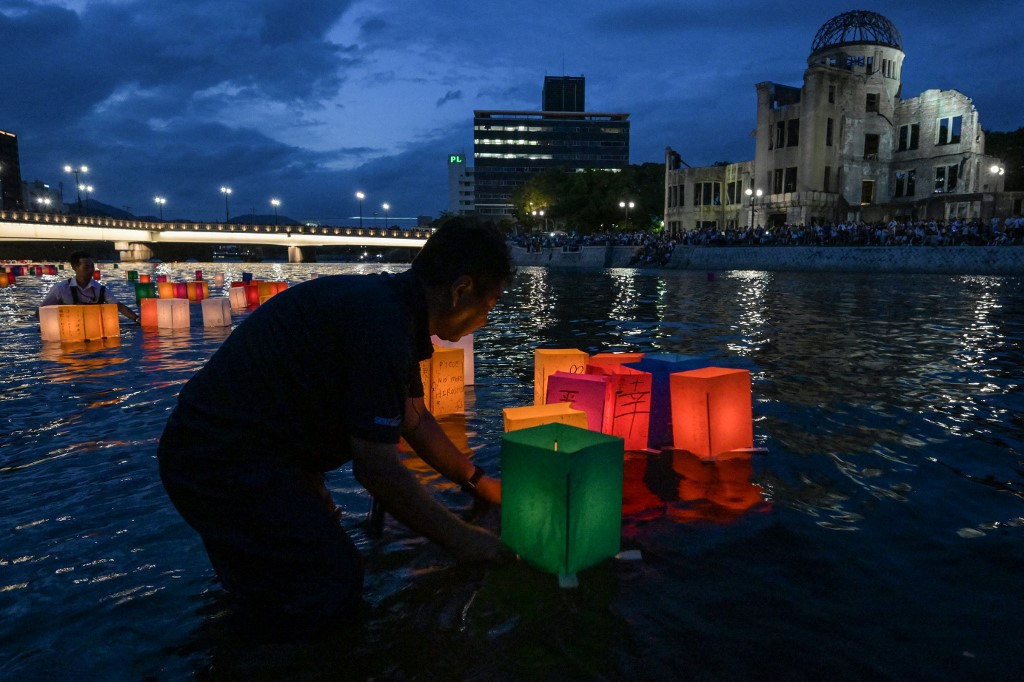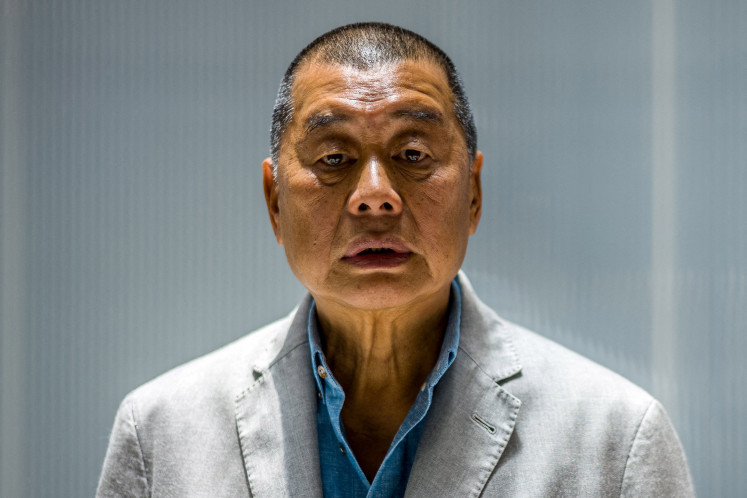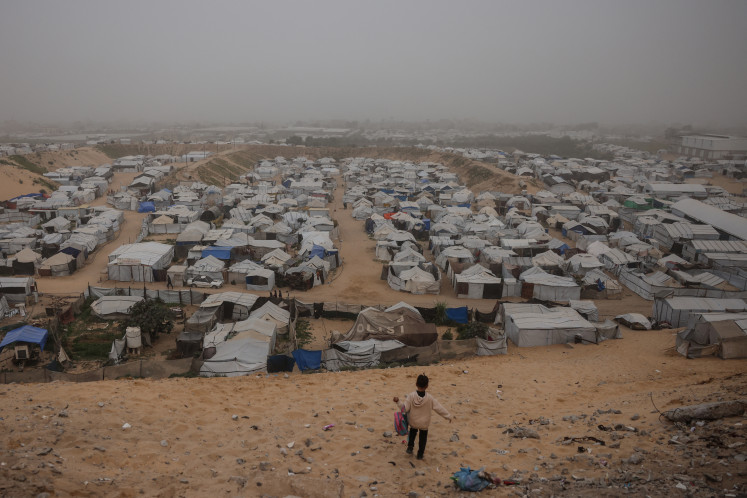Popular Reads
Top Results
Can't find what you're looking for?
View all search resultsPopular Reads
Top Results
Can't find what you're looking for?
View all search resultsJapan at a nuclear crossroads, 80 years on
Japan faces with growing urgency the question of how to carry forward the moral voice for ridding the world of nuclear weapons.
Change text size
Gift Premium Articles
to Anyone
E
ighty years after the US atomic bombings of Hiroshima and Nagasaki, Japan faces with growing urgency the question of how to carry forward the moral voice for ridding the world of nuclear weapons as generational memory fades and nuclear risks rise amid the advancement of technology.
Atomic bomb survivors, who have helped shape the nuclear taboo over the past decades, are now on average over the age of 86, meaning that the generation of those who witnessed firsthand the horrific effects of nuclear weapons is nearing its end, leaving a void increasingly difficult to fill.
Positioned close to an assertive China and North Korea that is honing its nuclear capabilities, the Japanese government is unlikely to give up its reliance on the US nuclear deterrent anytime soon, despite viewing its mission as advocating for a world without nuclear weapons.
Following this week's 80th atomic bomb commemorative events, Prime Minister Shigeru Ishiba said at a press conference Saturday that the government is committed to defending the country and its people, while at the same time working to eliminate nuclear weapons.
"So how do we balance these two issues? I firmly believe that we have to fulfill both responsibilities," he said.
Heigo Sato, a professor with expertise on security issues at Takushoku University in Tokyo, said Japan, the only country to have suffered nuclear attacks in war, should continue to play a key role in leading global efforts toward nuclear disarmament through what he calls a "multiple-pronged approach," given the challenges seen in international treaties regarding nuclear weapons.
While the UN nuclear ban treaty lacks the support of nuclear weapon states, a broader arms control regime based on the Nuclear Non-Proliferation Treaty is increasingly under strain. In June, the United States carried out air strikes on Iran to degrade its nuclear programs, leading Tehran to issue threats to withdraw from the NPT.
"We should neither be too dominated by talks on nuclear deterrence, nor be obsessed with the nuclear ban treaty," Sato said, suggesting that other approaches could include reinforcing a system to prevent nuclear proliferation or "fostering an international social movement that rejects nuclear weapons."
As nuclear weapon states continue to modernize and expand their arsenals amid Russia's invasion of Ukraine, conflicts in the Middle East and other geopolitical tensions, the landscape could be further complicated as artificial intelligence is eventually incorporated into nuclear command and control systems.
Melissa Parke of the International Campaign to Abolish Nuclear Weapons, which won the 2017 Nobel Peace Prize, warned of a "perilous" nuclear age in which AI, rather than human judgment, drives decision-making.
She argues that this technological detachment makes it all the more urgent that policymakers heed the messages of those who have experienced the consequences of nuclear weapons firsthand.
"We need global leaders to be listening to the hibakusha (survivors) about the reality of what nuclear weapons actually do to people. They talk in very abstract terms about nuclear weapons and nuclear deterrence," said Parke. "But the reality is actually what the hibakusha are talking about."
The testimonies of the survivors to convey the humanitarian consequences of nuclear weapons can only increase its significance as time passes, with both the Hiroshima and Nagasaki city governments training future generations to become "storytellers" to carry forward the account.
But Sato is doubtful about the effectiveness of such efforts, saying that future storytellers are "no different from a game of telephone" as they are essentially recounting someone else's story.
"As with any game of telephone, the further along the chain you go, the more the message gets distorted or loses impact," he said.
Mitsuhiro Hayashida, whose grandfather survived the atomic blast in Nagasaki, said a broader understanding of history, including Japan's aggression in the lead-up to and during World War II, will help encourage the youth to link the stories with present day action to realize peace.
In contrast to Germany, where children study the history of World War II in the hope of preventing future atrocities, the discourse in Japan tends to focus on victimhood, he said.
"We need to explain the atomic bombings not just as isolated events, but in connection with the broader history of the war -- why that war happened, and what kind of reflection followed in postwar Japan," said the 33-year-old, who founded Peace Education Lab Nagasaki in 2023 to provide such training.
While the awarding of the Nobel Peace Prize last year to Nihon Hidankyo, Japan's leading group of atomic bomb survivors, has helped to reinvigorate citizens' movements and individual activists, a significant impact on a government policy level has yet to be seen.
Terumi Tanaka, 93, who has long played a key role in Nihon Hidankyo, said that the government, as a democracy, reflects the will of the people.
"If we have a government that supports policies like nuclear deterrence, ultimately, it's the responsibility of the citizens," Tanaka, a co-chair of the group, said at an event in Nagasaki on Friday.
For Tanaka, who was exposed to the bombing in the city at age 13, seeing his efforts culminate in the signing and ratification of the nuclear ban treaty by Japan and meaningful steps toward eliminating nuclear weapons is one of his greatest wishes in life.
"If we can begin to see a path to abolition, I think I can finally say farewell with peace in my heart," he said.










